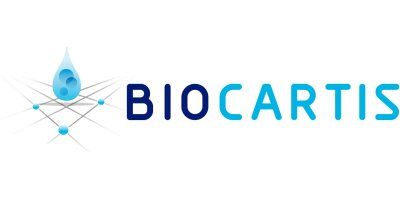

- Home
- Companies
- Biocartis NV
- News
- Biocartis Announces Presentation of ...
Biocartis Announces Presentation of Three Idylla™ Studies at 32nd European Congress of Clinical Microbiology & Infectious Diseases (ECCMID)
Biocartis Group NV (the ‘Company’ or ‘Biocartis’), an innovative molecular diagnostics company (Euronext Brussels: BCART), today announces that three Idylla™ study posters, of which two on the SeptiCyte® RAPID (developed in collaboration with Immunexpress) and one on the Idylla™ SARS-CoV-2 Test (CE-IVD) and Idylla™ SARS-CoV-2/Flu/RSV Panel (CE-IVD), were presented at the 32nd European Congress of Clinical Microbiology & Infectious Diseases (ECCMID) between 23 – 26 April in Lisbon, Portugal.
Herman Verrelst, Chief Executive Officer of Biocartis, commented: “We are pleased to see three study presentations on Idylla™ tests during this annual conference of Europe’s leading society in clinical microbiology and infectious diseases. The studies underline once more that the strength of Idylla™ tests lies in the combination of both fast and accurate results, enabling rapid clinical decision-making. Especially in the case of sepsis, this can save lives. Finally, these studies show how Idylla™ testing can be easily integrated within the routine diagnostic process of hospitals.”
The first study1 (abstract #04729) was presented in a poster session and evaluated whether SeptiCyte® RAPID could be used as a triage tool for COVID-19 patients at a hospital2 in France. Results demonstrated SeptiCyte® RAPID’s ability to distinguish between COVID-19 patients showing higher extents of lung damage as defined by lung CT scans (critical and severe) from those with a milder presentation (mild, moderate, absent). The SeptiScore®, as evaluated by SeptiCyte® RAPID, of critical and severe patients in the ICU was higher relative to the moderate and mild cases not in ICU. Also, the utility of the SeptiScore® for longitudinal monitoring of patients with severe cases was suggested by repeat testing on selected patients.
Rollie Carlson, Ph.D., Chief Executive Officer of Immunexpress, added: “During the COVID-19 pandemic, sepsis incidence increased. This study shows that the SeptiCyte ® RAPID on the Idylla™ platform can distinguish COVID-19 cases with severe or critical presentation on a CT scan from those with mild or moderate presentation. This is essential to identify and triage patients in need of timely sepsis specific medical care.”
The second study3 (abstract #04693) was presented in an online poster session and evaluated the performance of SeptiCyte® RAPID as an everyday tool in the management of ICU patients at two clinical sites in Portugal4 . Results demonstrated a significant correlation between the diagnosis of sepsis and an elevated SeptiScore®. From eight patients diagnosed with either septic shock or sepsis, six had elevated scores and two had intermediate-elevated scores. The study concluded that the SeptiCyte ® score pinpointed all cases while also suggesting the diagnosis of patients of whom sepsis was not detected by most traditional methods, found to be severely lacking in this setting5.
Severe COVID-19 can be considered an example of viral sepsis. Sepsis is a life-threatening medical emergency associated with high morbidity and mortality, making early sepsis detection of utmost importance. Today’s gold standard for detecting sepsis in the laboratory setting is microbiological culture identification. However, the prediction of positive blood culture results remains a very difficult task since positive blood culture results in approx. only 20% of the cases6 due to low sensitivity. Also, it can take days to report results. Studies such as the ones presented at ECCMID show that newer methods such as the SeptiCyte® RAPID, running on Biocartis’ Idylla™ platform, combine fast and accurate results, enabling rapid clinical decision-making.
Finally, the third study7 (abstract #04963), presented in a poster session, highlighted the performance data of the Idylla™ SARS-CoV-2 Test (CE-IVD) and the Idylla™ SARS-CoV-2/Flu/RSV Panel (CE-IVD) and concluded that both Idylla™ assays provide quick, accurate results with minimal hands-on-time, making them suitable for an NHS (National Health Service, UK) setting.
